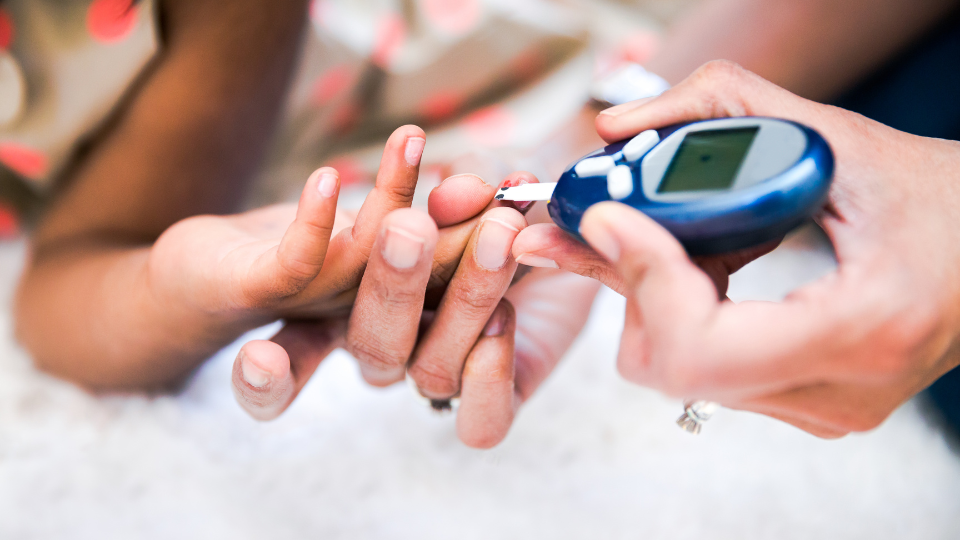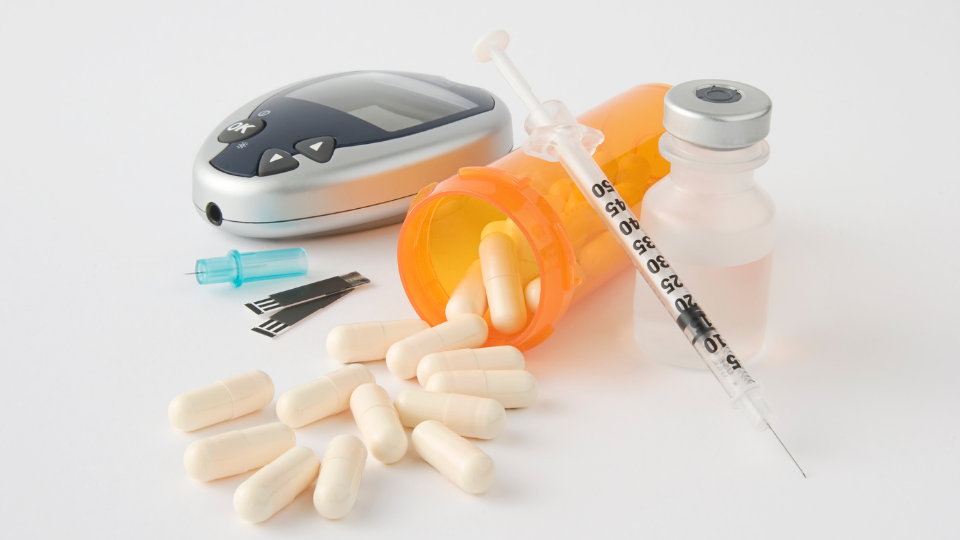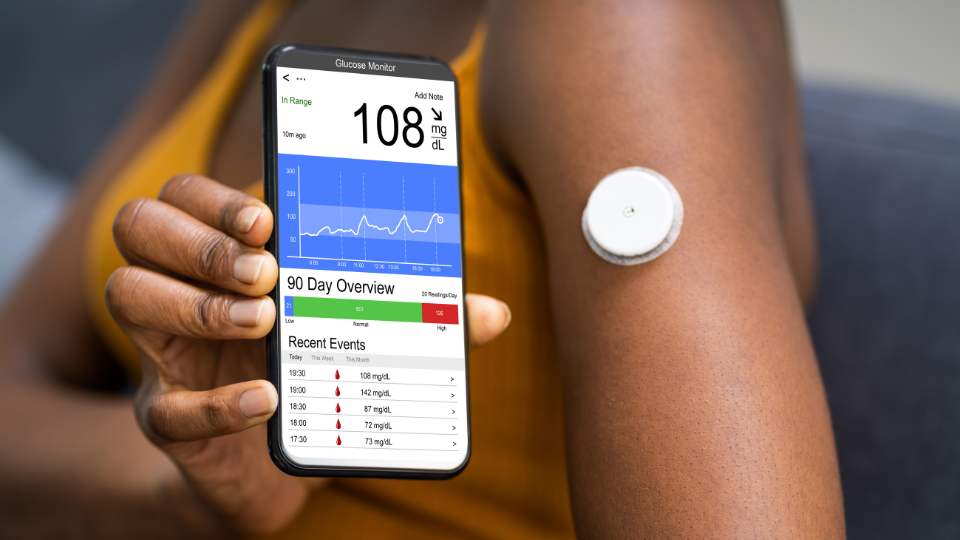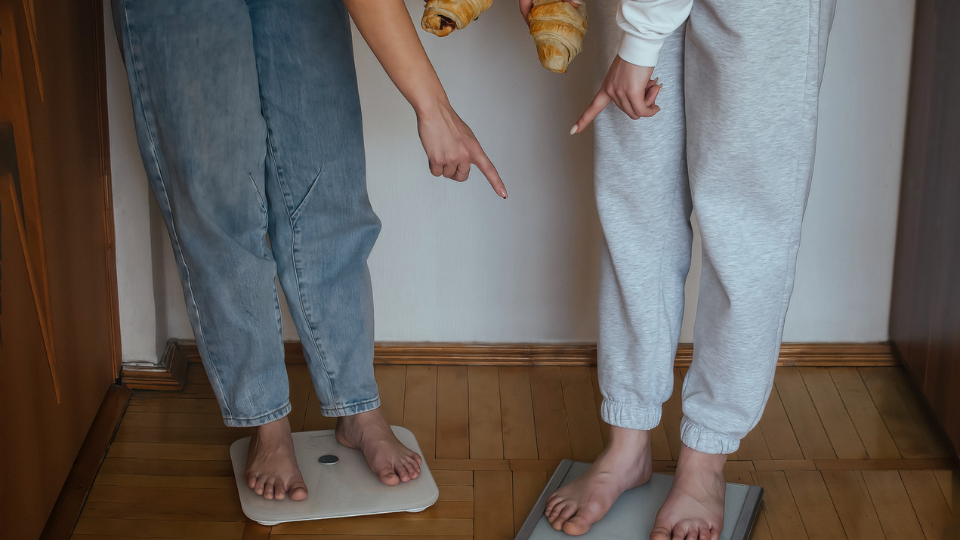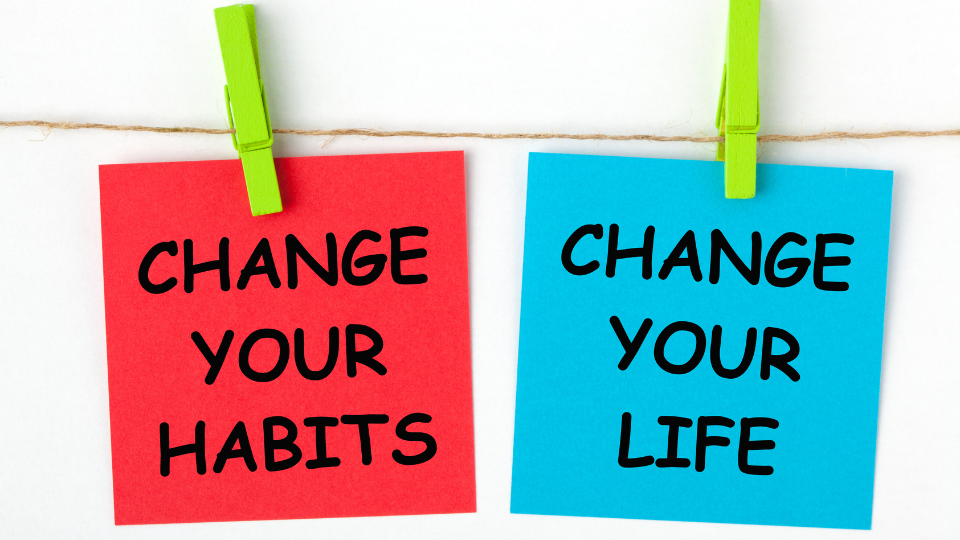Are you looking to reverse your type 2 diabetes and regain control of your health? You are not alone in this journey.
In this article, we will delve into the question of whether type 2 diabetes can be reversed and provide you with insights into the effective approach of utilizing food as a powerful tool in combating this disease.
Research suggests that it is possible to potentially reverse type 2 diabetes through lifestyle changes such as switching to a whole food plant-based diet, regular physical exercise and proper stress management techniques.
By making conscious choices about what you eat, engaging in regular physical activity and other positive lifestyle changes, you have the power to take control of your health and potentially reverse the course of this condition.
Through this article, we will guide you on the path toward reclaiming your health and provide you with practical strategies to help you achieve lasting results. Get ready to embark on a transformative journey towards reversing type 2 diabetes.
Key Takeaways
- Healthy diet, regular physical activity, and maintaining a healthy weight can potentially reverse type 2 diabetes.
- Monitoring blood sugars helps identify patterns and make necessary adjustments for stable levels.
- Weight management is key to managing diabetes and potentially reversing the condition.
- Lifestyle changes, including a healthy diet and regular exercise, can reverse type 2 diabetes.
How it Works
Type 2 diabetes is a condition where your body becomes resistant to insulin or doesn't produce enough of it. This leads to high blood sugar levels, which can cause various health problems.
However, you can potentially reverse this condition, and other lifestyle diseases by making lifestyle modifications and adopting a healthy diet such as a whole food, plant-based diet.
Weight Management
One key factor in reversing type 2 diabetes is weight management. Excess weight puts stress on the body and makes it harder for insulin to do its job effectively. Losing even a small amount of weight can significantly improve blood sugar control and overall health.
You can achieve sustainable weight loss and improve insulin sensitivity by following a balanced diet that focuses on whole plant foods such as fruits, vegetables, whole grains, legumes, nuts, and seeds.
Lifestyle Modification
An important aspect of reversing type 2 diabetes is lifestyle modification. Regular physical activity coupled with a wholesome and balanced diet is crucial in managing blood sugar levels and improving overall health.
Engaging in activities like brisk walking, cycling, or swimming for at least 150 minutes per week can help lower blood sugar levels and reduce the risk of complications associated with diabetes. Also, managing stress levels through meditation or yoga can contribute to better blood sugar control.
In summary, type 2 diabetes can be reversed through lifestyle modifications and dietary changes.
Remember that everyone's journey toward reversing diabetes may vary. However, with determination and support, you can take charge of your health and work towards achieving remission from type 2 diabetes.
Diet and Nutrition
Start your journey towards better health by embracing a whole food plant-based diet packed with nourishing foods that have the power to transform your well-being.
When reversing type 2 diabetes, diet and nutrition are crucial in regulating blood sugar levels and promoting weight loss. By making smart food choices, you can not only manage your diabetes but also potentially achieve remission.
-
Increase your intake of whole grains: Whole grains such as brown rice, quinoa, and whole wheat bread are rich in fiber and nutrients that help regulate blood sugar levels. These foods have a lower glycemic index compared to refined grains, meaning they cause a slower rise in blood sugar after meals. Incorporating whole grains into your diet can also aid in weight loss and reduce the risk of heart disease.
-
Choose colorful fruits and vegetables: Fruits and vegetables are packed with vitamins, minerals, antioxidants, and fiber that are beneficial for managing diabetes. Opt for a variety of colorful options like berries, leafy greens, bell peppers, broccoli, and carrots. These nutrient-dense foods can help control blood sugar levels while providing essential nutrients for overall health.
-
Prioritize plant-based protein sources: Including plant-based protein sources like lentils, pulses, legumes, tofu, and tempeh is essential for maintaining stable blood sugar levels throughout the day. Protein helps slow down digestion and promotes satiety aiding in weight management. These protein-rich foods also provide essential amino acids for cell repair and overall body function.
By incorporating these dietary changes into your lifestyle along with regular physical activity and medication management under the guidance of a healthcare professional, you can take significant steps towards reversing type 2 diabetes.
Remember that everyone's journey may vary in terms of time frame and results achieved; patience is key along this transformative path to better health!
Exercise and Physical Activity
Engaging in regular physical activity and exercise is like unlocking a door to a world of vitality and well-being, where your body becomes energized and your spirit soars. Regarding type 2 diabetes, exercise, and physical activity play a crucial role in reversing the condition or achieving remission.
Studies have shown that lifestyle interventions, which include incorporating exercise into your daily routine, can significantly improve blood glucose levels and increase insulin sensitivity.
Exercise helps lower blood glucose levels by allowing your muscles to use more glucose for energy. When you engage in physical activity, your muscles contract, causing them to take up glucose from the bloodstream without needing insulin. This helps to reduce overall blood sugar levels and improve insulin sensitivity.
Regular exercise also helps with weight management by burning calories and increasing muscle mass, which can further enhance insulin sensitivity.
Physical activity doesn't necessarily mean hitting the gym or running marathons.
Any form of movement counts towards improving your health. Walking briskly, cycling, swimming, dancing, or gardening can all contribute to positive health outcomes. The key is finding activities you enjoy and can consistently incorporate into your daily routine.
Incorporating exercise into your lifestyle coupled with a well-balanced whole food plant-based diet not only helps reverse type 2 diabetes but also offers numerous other benefits, such as improved cardiovascular health, increased energy levels, better mood regulation, and enhanced overall well-being.
So why not start small by taking short walks after meals or using the stairs instead of the elevator?
Remember that consistency is critical if you are to reap the rewards of physical activity. With time and commitment, you'll see improvements in your blood glucose levels and experience the transformative power of an active lifestyle.
Medication and Treatment
Incorporating medication and treatment options into your diabetes management plan can be a game-changer for improving your overall health and well-being. When it comes to managing type 2 diabetes, several medications can help control blood glucose levels and reduce insulin resistance.
These medications work in different ways to target specific aspects of the disease, helping you achieve better control over your condition.
-
Metformin: This is often the first-line medication prescribed for type 2 diabetes. It helps lower blood glucose levels by reducing the amount of glucose produced by the liver and increasing insulin sensitivity in the body. Metformin has been shown to be effective in managing blood sugar levels and may even contribute to weight loss.
-
Insulin: In some cases, people with type 2 diabetes may need insulin therapy to manage their condition effectively. Insulin is a hormone that helps regulate blood sugar levels by allowing cells to take up glucose from the bloodstream. Depending on individual needs, it can be administered through injections or an insulin pump.
-
Other Medications: Various other medications are available that target different aspects of type 2 diabetes management, such as incretin mimetics, SGLT-2 inhibitors, DPP-4 inhibitors, and GLP-1 receptor agonists. These medications stimulate insulin production, reduce appetite, or inhibit glucose reabsorption in the kidneys.
While medication plays a crucial role in managing type 2 diabetes, it's important to remember that it should be used in conjunction with lifestyle changes for optimal results.
By adopting a healthy whole food plant-based diet rich in whole plant foods, engaging in regular physical activity, and maintaining a healthy weight, you can make significant strides toward reversing your condition or achieving remission.
Always consult your healthcare provider to determine which medications and treatment options best suit your specific needs. You can also book an online consultation with Dr. Achyuthan Eswar for a personalized medical consultation.
Blood Sugar Monitoring
Monitoring your blood sugar levels is crucial to managing and understanding your diabetes. Regularly checking your blood sugars can give you valuable insights into how different foods and activities affect your glucose levels. This information is essential for making informed decisions about your diet, exercise routine, and medication usage.
Numerous studies have shown the effectiveness of blood sugar monitoring in diabetes management. For instance, research has found that individuals who consistently monitor their blood sugars tend to have better control over their diabetes than those who do not.
Monitoring allows you to identify patterns and trends in your glucose levels, which can help you make necessary adjustments to maintain stable blood sugars. In addition to aiding in day-to-day diabetes management, monitoring your blood sugar levels can also play a role in achieving remission of type 2 diabetes.
Studies have shown that by closely monitoring their blood sugars and following a whole food plant-based diet, some individuals with type 2 diabetes were able to achieve long-term remission without the need for medication.
This highlights the importance of regular monitoring as part of an overall strategy for managing and potentially reversing type 2 diabetes.
By actively participating in this process, you take control of your diabetes management journey and increase the likelihood of achieving positive outcomes such as weight loss or reduced reliance on diabetes medication.
Weight Management
Losing weight is often considered key to managing diabetes effectively and improving overall health. Regarding type 2 diabetes, weight management is crucial in achieving blood sugar control and potentially reversing the condition.
Here are three essential ways that weight management can benefit people with type 2 diabetes:
-
Improved insulin sensitivity: Carrying excess weight can make cells more resistant to the effects of insulin, leading to higher blood sugar levels. Losing weight can improve insulin sensitivity, allowing the hormone to effectively regulate blood sugar levels.
-
Reduced medication dependence: For many patients with type 2 diabetes, losing weight can decrease the need for medication. As weight loss improves blood sugar control, some individuals may be able to reduce or even eliminate their reliance on medications such as oral antidiabetic drugs or insulin injections.
-
Increased likelihood of remission: Research has shown that significant and sustained weight loss through dietary changes can result in remission of type 2 diabetes. Although not all patients will achieve remission, adopting a healthy diet and losing excess weight dramatically increases the chances of putting the condition into remission.
Considering these benefits, it is evident that focusing on weight management is crucial for people with type 2 diabetes.
Remember that everyone's journey is unique, so consult your healthcare team for personalized advice on managing your condition through diet and lifestyle modifications.
Lifestyle Changes
Now that you understand the importance of weight management in reversing type 2 diabetes let's dive into the next crucial aspect: lifestyle changes. Making positive changes to your lifestyle can have a significant impact on your blood sugar levels and overall health.
Whole Food Plant-Based Diet
One fundamental lifestyle change that can help reverse type 2 diabetes is adopting a healthy low-calorie diet such as a whole food plant-based diet. Focus on consuming whole, unprocessed whole plant foods such as fruits, vegetables, whole grains, legumes, nuts and seeds.
These nutrient-rich foods provide essential vitamins and minerals while being low in calories and high in fiber. Additionally, reducing your intake sugary drinks, processed snacks can significantly improve your blood sugar control.
Regular Exercise
Regular exercise is another vital component of reversing type 2 diabetes. Engaging in physical activity helps lower blood glucose levels by increasing insulin sensitivity.
Aim for at least 150 minutes of moderate-intensity aerobic exercise per week, such as brisk walking or cycling. Strength training exercises are also beneficial as they help build muscle mass and improve insulin action.
Incorporating these lifestyle changes alongside weight management can lead to remarkable results in putting type 2 diabetes into remission. Remember to consult with your healthcare provider before making any drastic changes to your diet or exercise routine.
Long-term Management
Sustaining healthy lifestyle changes is essential for the long-term management of type 2 diabetes, ensuring a brighter and healthier future. By making these changes, you can significantly improve your overall health and potentially even achieve remission from type 2 diabetes.
Here are some key factors to consider when managing your condition:
-
Diabetes Diagnosis: When first diagnosed with type 2 diabetes, it's essential to understand the severity of the condition and take immediate action. This includes working closely with healthcare professionals to create an individualized plan incorporating dietary changes, exercise routines, and medication management.
-
Remission from Type 2 Diabetes: With the correct lifestyle modifications, it is possible to achieve remission in type 2 diabetes. Research has shown that weight loss through healthy calorie intake can improve glucose levels and increase insulin sensitivity. Additionally, low-fat vegan diets have been found to be effective in reducing blood sugar levels and promoting weight loss.
-
Beta Cells: The ability to reverse type 2 diabetes lies within the functioning of beta cells in the pancreas. These cells are responsible for producing insulin, which helps regulate blood sugar levels. Adopting a healthy lifestyle, including regular exercise and a balanced whole food plant-based diet, can support the proper function of beta cells and improve insulin production.
-
Long-Term Glucose Control: Managing your glucose levels is crucial for long-term management of type 2 diabetes. Regular monitoring of blood sugar levels will help you make informed decisions about your diet and medication regimen. Maintaining a consistent eating schedule and avoiding skipping meals or overindulging in high-sugar foods is also essential.
Frequently Asked Questions
Is type 2 diabetes reversible for everyone, or are there certain individuals who cannot reverse it?
Yes, type 2 diabetes can be reversed for many individuals. However, there are certain factors that may make it more challenging for some people. By making lifestyle changes and working with healthcare professionals, you can increase your chances of reversing type 2 diabetes.
You can also book an online consultation with Dr. Achyuthan Eswar for a personalized medical consultation and guidance to help you potentially reverse type 2 diabetes.
Can reversing type 2 diabetes completely eliminate the need for medication and insulin injections?
Yes, reversing type 2 diabetes can eliminate or lower the need for medication and insulin injections. Adopting a nutritious whole food plant-based diet, along with making lifestyle adjustments like staying away from processed foods and animal products, while incorporating regular exercise, may lead to better blood sugar control and the possibility of achieving remission.
You can also book an online consultation with Dr. Achyuthan Eswar for a personalized medical consultation and guidance to help you potentially reverse type 2 diabetes.
What are some common challenges or obstacles that people face when trying to reverse type 2 diabetes?
Common challenges when trying to reverse type 2 diabetes include changing eating habits, maintaining motivation, and dealing with social pressures. It can be difficult, but with support and education, you can overcome these obstacles on your journey to better health.
Are there any specific foods or nutrients that should be completely avoided in order to successfully reverse type 2 diabetes?
To successfully reverse type 2 diabetes, it is important to avoid foods high in added sugars, refined grains, and unhealthy fats. Focus on consuming a balanced whole food plant-based diet rich in whole grains, fruits, vegetables,
Can the effects of reversing type 2 diabetes be sustained in the long term, or is there a risk of the condition returning?
Yes, the effects of reversing type 2 diabetes can be sustained in the long term. By adopting a healthy low-calorie diet such as a whole food plant-based diet and other lifestyle modifications, you can maintain blood sugar control and reduce the risk of the condition returning.
Conclusion
In conclusion, you have the power to reverse type 2 diabetes and reclaim control over your health. By adopting a nutritious whole food plant-based diet filled with colorful fruits and vegetables, legumes, whole grains, fruits and nuts, you can nourish your body from within and support its natural healing processes.
Furthermore, incorporating regular exercise coupled with a well-balanced whole food plant-based diet into your daily routine will not only strengthen your muscles but also improve insulin sensitivity, allowing glucose to be utilized more efficiently by your cells.
While medication and treatment may be necessary in some cases, monitoring your blood sugar levels regularly empowers you to make informed decisions about what foods work best for your body. Envision the sense of achievement as you see those numbers gradually stabilize and move towards the healthy range.
Additionally, maintaining a healthy weight through portion control and mindful eating practices will not only reduce stress on your body but also enhance overall well-being. Remember that reversing type 2 diabetes requires long-term commitment and lifestyle changes.
Visualize yourself making small yet significant adjustments to everyday habits - swapping sugary drinks for refreshing infused water or opting for homemade meals instead of fast food options. These choices are stepping stones towards lasting success in managing this condition effectively.
In summary, by embracing an evidence-based approach centered around,
- Planet-based nutrition
- Physical activity
- Medication management
- Blood sugar monitoring
- Weight management
and other lifestyle changes, you have the ability to reverse type 2 diabetes. Imagine yourself taking charge of your health journey and experiencing the joy of improved well-being as you triumph over this chronic condition.
Next Steps
Congratulations! You have empowered yourself with the knowledge of how to reverse diabetes through lifestyle changes such as transitioning to a whole food plant-based diet.
Here are some tools and resources that can assist you in making a smooth transition to a whole food plant-based diet and reclaiming your health,
- Book an online consultation with Dr. Achyuthan Eswar for a personalized medical consultation to prevent, treat and better manage lifestyle diseases through diet and lifestyle.
- Learn to cook delicious whole food plant-based goodies and sign up for courses on health and wellness from the comfort of your home. Join our online courses from anywhere in the world.
- Get daily essentials to cook healthy meals at home.
Stock up on delicious sweets and snacks that are sugar/jaggery-free, oil-free, maida-free and plant-based - Available Pan-India.


